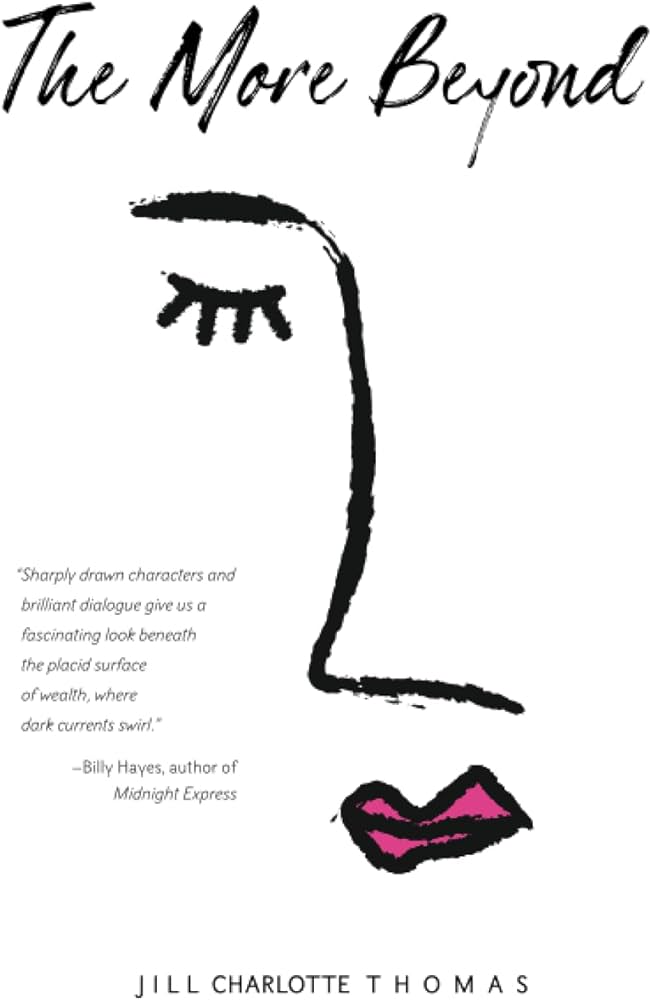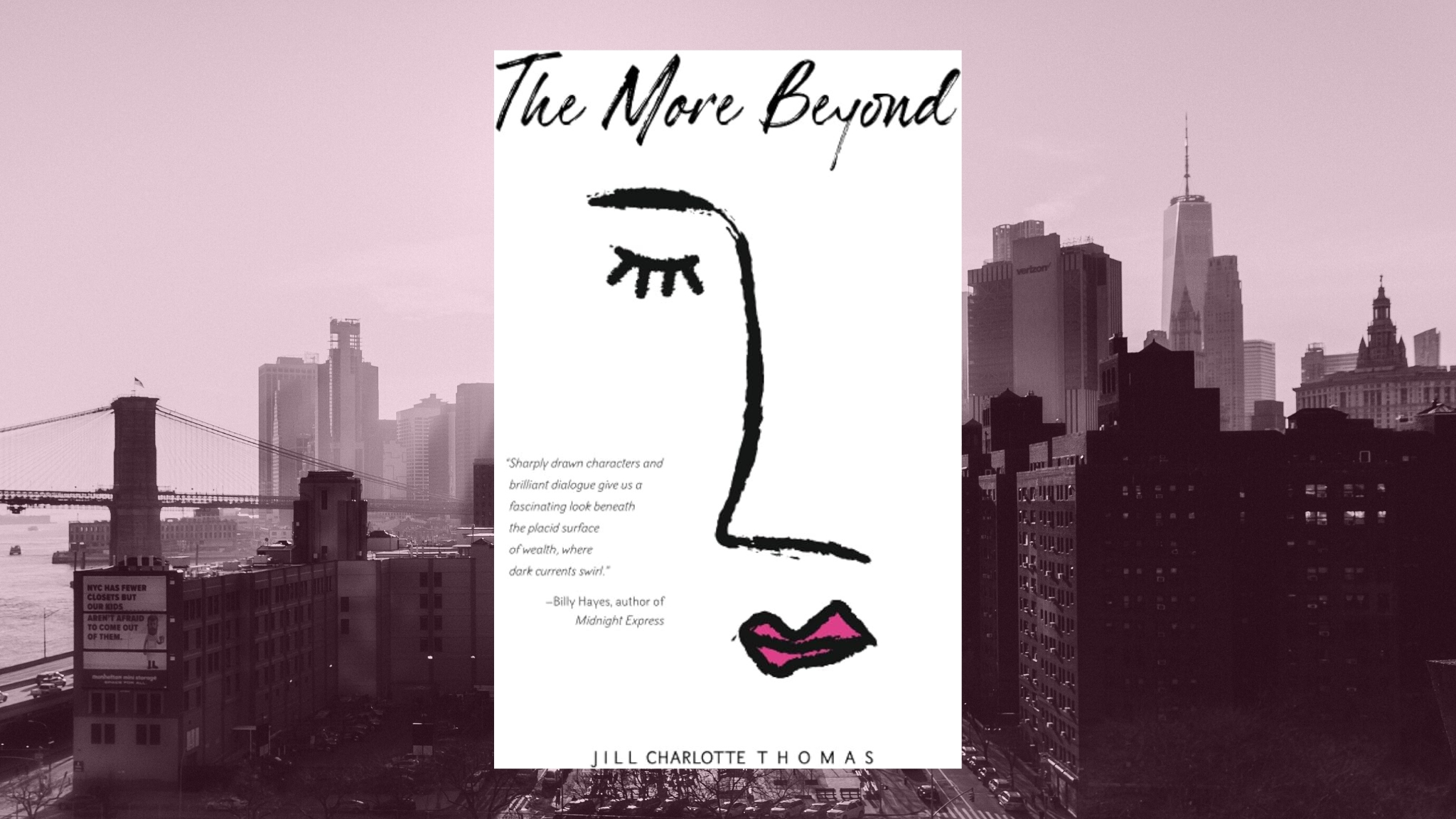The More Beyond by Jill Charlotte Thomas
Jill Charlotte Thomas’ novel is a paean to the 1980s excess of Manhattan’s very rich: attending the opera in black tie, tea in the Palm Court at the Plaza, bellinis at Cipriani’s, shopping at Bergdorf’s, limousines, Verve Clicquot and oysters. It was a fine life for Morton Guthrie, a young woman who had everything.
But it all rang hollow for Morton, and even though she most certainly was aware that money doesn’t buy happiness, that didn’t stop her from succumbing to a $4,000 handbag when a day in the City left her cold.
Shaky Mental Health Meets Tough Family Dynamics
In The More Beyond, all the glamour and glitter and luxury is just a veneer over an emptiness that Morton cannot suffer — or explain — and with a careless sense of elan, she makes failed attempts at suicide which only land her in the hospital.
The book toggles between her stay in an exclusive psychiatric facility and a three-day visit with her parents in their personal suite at the Sherry-Netherland. Considering her mental state while being chauffeured around the City and attending events with her family, it’s debatable about which place is worse.
New York City at Its Best and Worst
Ms. Thomas captures the atmosphere of New York City and its best and worst, and poor Morton’s story is brilliant black humor, so subtle that readers might feel a little guilty finding it light reading. Even Morton herself finds her situation slightly absurd.
“The insane are pretty much the same in any hospital,” she muses, “severity varying. And even though I’d voluntarily checked myself into Mission Private Hospital, going around saying I wasn’t crazy didn’t confirm my credibility. A nuthouse is a nuthouse, is a nuthouse.”
And a “nuthouse” it most certainly is, with inmates ranging from the morbidly morose to aggressive schizophrenics. Morton does her best to accurately assess her own situation and figure out what to do with it, but checking herself out of the hospital to spend time shopping at Tiffany or staring at the elephant-dung-encrusted portrait of the Virgin Mary doesn’t help. Neither does watching her extended family pick at one another and expose their reliance on drugs, money and deviant sex.
Can Money Buy Happiness?
She comes to some conclusions, however, admitting that “… after enough plastic surgery and realizing that your life isn’t what you’d like it to be, you go see a shrink to try and find out why, or marry a rich guy whose money will buy you all the happiness in the world, until you learn that the only thing money will buy is less time to work and more time to obsess on the fact that you’re still not satisfied with your life, so you go shopping, buy things to make you feel better about yourself, and if that doesn’t work, blame it all on your spouse, divorce the bastard, sue the shit out of him, get more money, more free time, and more plastic surgery. That’s the world I come from…
“I’m only playing in my parents’ world,” she adds. She befriends the help, the guy who runs the elevator, the room service deliveryman. She wonders about their lives. She says her heart and soul are laced with bullet holes, she fears that others will see what phonies she and her family are, that they’re not very special after all.
Furthermore, her world is full of dangerous options for suicide, and she notes them as she passes: the iron in the laundry room at the hospital, a pool, razor blades, ribbons, and bottles of pills. But Morton lives in a padded cell created with money and privilege and denial.
Ms. Thomas is careful not to tie up Morton’s loose ends, which gives her readers things to ponder when they close the book. Well-done.
About Jill Charlotte Thomas:
 Jill Charlotte Thomas is a writer whose plays have been produced in Los Angeles, and whose poetry has been published in the UK and the States. Her song, “Betty Ford for Christmas,” co-written and sung by Leif Garrett, is available on iTunes. She lives in Maine and is currently working on a musical.
Jill Charlotte Thomas is a writer whose plays have been produced in Los Angeles, and whose poetry has been published in the UK and the States. Her song, “Betty Ford for Christmas,” co-written and sung by Leif Garrett, is available on iTunes. She lives in Maine and is currently working on a musical.





